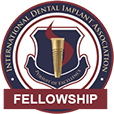Early Detection is Key to Treating Oral Cancer
March 19th, 2019

Every hour of every day, someone in North America dies of oral cancer, the sixth most common diagnosed form of the disease. The five-year survival rate is only 50 percent, and oral cancer is one of the few cancers whose survival rate has not improved.
This grim statistic may make you think that oral cancer is a particularly deadly form, when in fact the high death rate has more to do with how late in its development oral cancer is detected. Routine screening is the key to early detection and survival, and in our continuing efforts to provide the most advanced technology and highest quality care available to our patients at Dr. Steven DeCasperis, DMD, we proudly screen our patients for oral cancer.
So, who’s at risk for oral cancer?
Anyone can develop oral cancer, but some people are at a higher risk. These high-risk groups include those over the age of 50 and men, who are twice as likely as women to develop the disease. Smoking or chewing smokeless tobacco products, consuming alcohol excessively, and constant exposure to the sun at a young age are also risk factors.
How is oral cancer detected?
Dr. DeCasperis and our team at Dr. Steven DeCasperis, DMD suggest our patients perform a monthly self-examination to check for unusual red or white patches, sores, lumps, or thickenings anywhere inside the mouth, on the lips, or in the throat and neck area.
We encourage you to give us a call at our convenient Lebanon, NJ office if you find any of these symptoms or if you have trouble swallowing or experience a chronic sore throat and hoarseness. During your visit, Dr. DeCasperis will inspect the oral tissues and neck to determine if abnormalities are present.
What happens if oral cancer is detected?
If we discover abnormal tissues during your visit, a biopsy will be required. The results from the biopsy will be sent to a laboratory to determine if the cells are cancerous or precancerous. If a diagnosis of cancer is made, surgery, as well as treatment such as chemotherapy or radiation may be necessary. Dr. DeCasperis and our team will work closely with your oncologist and other members of your medical team to ensure that you achieve the best possible oral health care both during and after treatment.
Finding out you have oral cancer can be devastating news. If you are concerned that you might be at risk for developing oral cancer, talk to us about screenings and other things you can do to reduce your risk. Through a routine visual inspection, Dr. DeCasperis and our team at Dr. Steven DeCasperis, DMD can often detect premalignant abnormalities and cancer at an early stage when treatment is both less expensive and more successful, and can potentially save your life. Ask us about a screening during your next visit!









